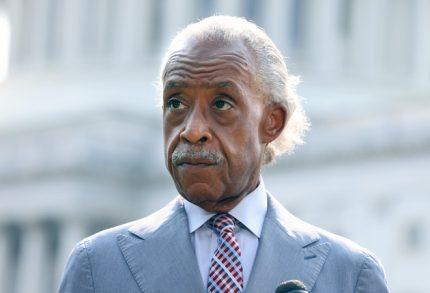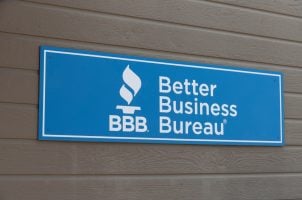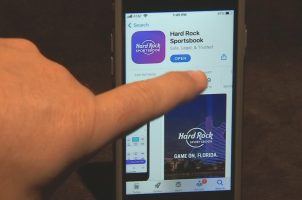Al Sharpton Cautions FTC About FanDuel/DraftKings Duopoly
Posted on: May 23, 2024, 02:29h.
Last updated on: May 23, 2024, 02:29h.
The Rev. Al Sharpton penned a letter to the Federal Trade Commission (FTC), urging the regulatory agency to examine the potential adverse effects on Black bettors and athletes that could stem from the “gambling duopoly” of DraftKings and FanDuel.

In the letter to FTC Chairwoman Lina Khan, the civil rights activist and MSNBC host, noted that the dominance of FanDuel and DraftKings in the US mobile sports wagering market weakens consumer protections. Sharpton estimates that 75% of all mobile sports bets in this country are placed via those two operators and when rivals such as BetMGM, Caesars Sportsbook, and Fanatics are factored in, a small number of companies control more than 90% of the domestic mobile betting market.
As a civil rights advocate, I write to you because their dominance and influence have raised serious concerns about competition, fairness, and consumer protection in the market. This is especially troubling when we consider the demographic profile of their user base, with a significant portion being Black Americans,” wrote Sharpton.
The activist’s words of warning come as some studies indicate minorities, including African Americans, are potentially vulnerable to problem wagering patterns and may be targeted by the industry in exploitative fashion.
Sharpton Might Be Onto Something with Warning
Data confirm that the early stages of the regulated sports wagering boom in the US was largely fueled by young men, many of whom are white and earn more than $100,000 a year.
As the industry has expanded, more minorities are betting on sports. A 2023 survey by the NCAA noted 68% of young Black adults admitted to wagering on sports with that percentage declining to 63% for Latinos, 55% for Asians and 54% for whites.
“When a duopoly takes hold, consumers are the biggest losers, and the most vulnerable consumers — including Black Americans — bear the brunt of that harm,” opined Sharpton. “Indeed, Black Americans on the whole are more likely to engage in sports betting; among young adults, they sports bet at a higher rate than any other demographic (68%). They also bet more money than any other ethnic group.”
It’s not clear what steps the FTC could take to “bust” the FanDuel/DraftKings duopoly or if such a move is a priority for the commission. Economic research firms there are downsides to duopolies, including the potential for collusion or price fixing among the two companies involved, but regulators have not slapped DraftKings and FanDuel with such allegations.
Sharpton Warning Appears Well-Timed
Sharpton’s call to action aimed at the FTC arrived at a time when it appears that the US sports wagering industry’s brief “wild west” days are over. Currently, the NCAA is working with regulators to eliminate proposition bets on its athletes.
Last month, the NBA banned Jontay Porter, formerly of the Toronto Raptors, for life for wagering on games and the scandal involving Shohei Ohtani’s former interpreter, Ippei Mizuhara, is widening, implicating multiple professional baseball players in an illicit sports wagering ring.
Shapton said if athletic integrity suffers as a result of betting, Black athletes and consumers could pay a price for those misdeeds.
“Sports are at the center of American culture and Black athletes are the center of American sports. If sports betting and gaming run rampant and infiltrates the integrity of the games, that can adversely affect both Black athletes and consumers,” observed the activist.
Related News Articles
BetMGM Gets an ‘F’ From Better Business Bureau
Florida Flop: Single-License Model Could Dampen Sports Betting Revenue
NFL, Media Attention Could Drive More Sports Betting Legalization
FanDuel CFO Reticent About Operator’s Nevada Efforts
Most Popular
Mirage Las Vegas Demolition to Start Next Week, Atrium a Goner
Where All the Mirage Relics Will Go
Most Commented
-
Bally’s Facing Five Months of Daily Demolition for Chicago Casino
— June 18, 2024 — 12 Comments
















No comments yet